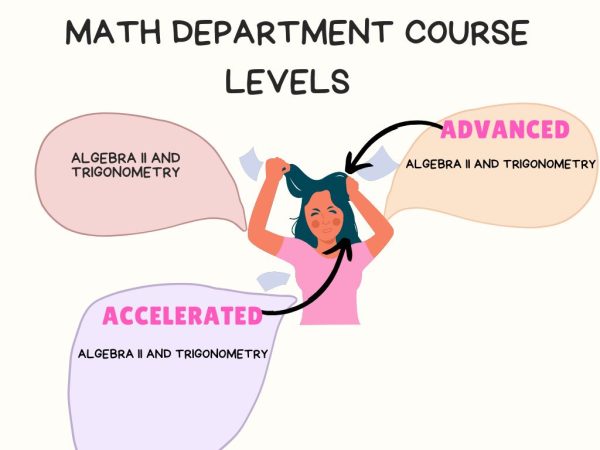It’s Complicated: English Faculty Explain Grading Practices
The English Department at Hackley has become notorious among students as having classes held to a very high standard with students feeling there may be significant variation between teacher to teacher as well as a somewhat lack of transparency in what teachers grade for. This reputation is warranted to an extent as the English teachers have acknowledged the difficulty in the course, however, the teachers did explain the methods and process of the department to The Dial. The Editorial Board believes that if students understand better what the English department is seeking as described below, it will make it easier for students to meet those expectations.
None of this is to say that students do not expect classes to be challenging. As an elite private school, Hackley is known for having classes that challenge the students and as an environment where rigor is welcomed and embraced.
However, Hackley offers all core classes at various levels with differing rigor to provide students with some ability to adjust the difficulty of their program based on their interests and abilities. There is room to move around when taking classes and possibly even dropping a subject one year. This is all true with the exception of English, which is required for all four years in the Upper School and does not have any available movement until senior year. This is another aspect of the English curriculum that students find challenging.
As a private school, teachers at Hackley have the opportunity to mold their curriculums as well as judge evaluations more personalized to their teaching: especially within the English department, and the department feels that this may be part of what is causing the feeling that there is a lack of transparency. This is a feature of an independent school and it is bound to create some disconnect between classes of the same subject as each teacher is afforded significant creative license in this aspect.
This argument as to why transparency is a difficult concept in Hackley’s English classes is valid; however, it does not outweigh the fact that because of this disconnect there is room for more transparency in what teachers are looking for when grading. Transparency is a difficult subject as each student will have a different experience in classes with various teachers; nevertheless, our reporting indicates a difficulty in understanding how to succeed and improve in these English classes. After speaking with various teachers, better insight and understanding of the inner workings and processes of the English department is gained.
James Flanigan teaches 10th and 11th grade English and shared with The Dial that he acknowledges that the subject is difficult because the level of original and critical thinking that Hackley English reaches is challenging and will never have the straightforward answers like can be found in some math or science assessments. The class requires independent thinking and although the teachers can provide tips and strategies for this, they cannot teach a student how to think. There is never one correct answer or way to go about an English assignment and that is also a reason why teachers may encourage diversity in thinking and writing across classes.
As mentioned before, a Hackley student cannot opt-out of English classes so every student takes the same classes each year. According to Flanigan, because of this, there may be wider gaps in grades and success because everyone takes it at the same level.
To create some standardization, Flanigan explains the professional development and retreats the English department conducts. The teachers meet as a grade level department and bring samples of student work from their classes. The teachers discuss and decide what grade they would give the work, and try to all be within a third of a letter grade.
Flanigan says the goal of these is standardized grading between teachers and it also allows other perspectives from other faculty to “create moments of reflection”. According to Flanigan, these retreats allow the teachers to collaborate while still celebrating the diversity of the department.
Brigid Moriarty is the 10th-grade dean and teaches 9th and 11th-grade English, and she emphasizes similar points to Flanigan’s. The department meets and is very deliberate about standardizing the grading system and also, according to Richard Robinson, head of the English department, is very conscious of the issue of English 9 to English 10 being a significant jump in sophistication. Robinson relayed to The Dial how, cognitively, the transition requires a more sophisticated approach to English class. He says that the jump has always been a big one, and as a teacher who has been at Hackley for 25 years, the conversation has focused on how the teachers can support the jump. The topic is still being discussed and the English department still wants to work on assisting the transition as best as possible.
Moriarty and Robinson both spoke on how the teachers in the English department all are on the same philosophical level and all want the same thing. Moriarty says Hackley English looks for students’ ability to read texts closely, be thoughtful thinkers, and be critical consumers of text. It is important that the students learn to push past the first idea they have and develop concepts further.
Both Moriarty and Robinson commented on how it is possible for students to get tripped up as each teacher does want the same thing but most likely will use different words to express what they want. What Moriarty thinks is beneficial about this is that it does help students adapt and that is part of the learning process. She speaks on the onus being on both parties of student and teacher; the teacher should be clear about what they want but if they aren’t it is the student’s job to follow up and ask for help.
When examining the English department, no one can shed light on the inner workings like Robinson. He has taught all grade levels but currently teaches 9th and 12th grade English. He speaks on how the department as a whole strives to be transparent and part of how he believes what teachers want is communicated through feedback on homework and essays. The clarity of assignments can be tricky as the teachers are very hesitant to use a rubric approach because model essays do not work and will oversimplify. The teachers hope to get students to have a sense of what big concepts are and what works best for them in each assignment. The goal is for the students to feel they own the assignment and feel they can accomplish what they need to. It is important for the students to deal with words but really extract meaning and make sure the words communicate that.
In addressing the difficulty of Hackley English, Robinson also discusses how students feel that expectations change every year and how this is a normal feeling to have. It is easy to get used to sticking with what has been learned in the past but the truth is, the landscape is shifting under students’ feet because they are being asked to develop new skills to produce more sophisticated results. Teachers can help with these feelings by offering exercises to help build skills and show students how to ask questions, hopefully leading to certain skills independently.
Robinson also emphasizes the importance of self-assessment: finding out what tools are being used and concentrating on issues and areas to improve. Robinson comments on the number of meetings he has seen between English teachers and the students. He believes this one-on-one time is really key and to not be fearful that it is a confession of weakness because what it really is is an opportunity to customize feedback and support one may need. Lastly, Robinson highly encourages these meetings because if many students go to a teacher and feel something was unclear, the teacher will take note of this and know they were not as transparent as they intended to be.
The Editorial Board greatly appreciates the time the English teachers and department as a whole communicated explanations and more information relayed. All of the information and recommendations provided should be utilized as students now have a look into the inner workings of the English department.





